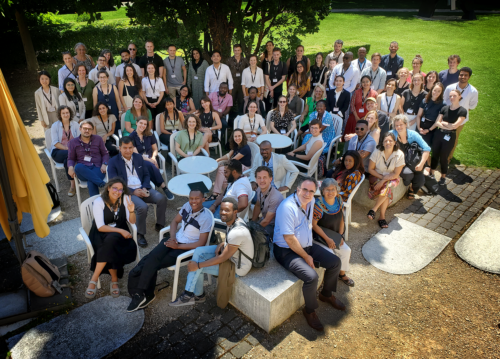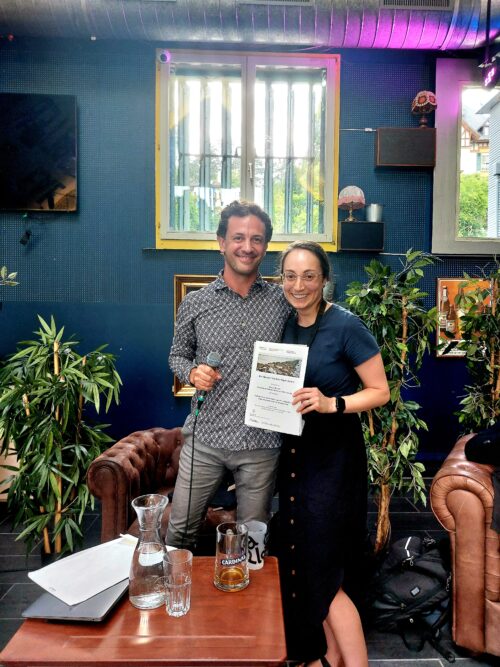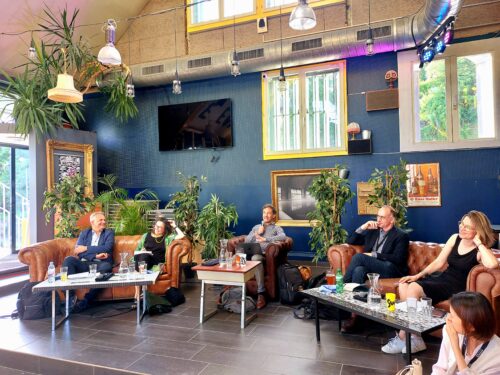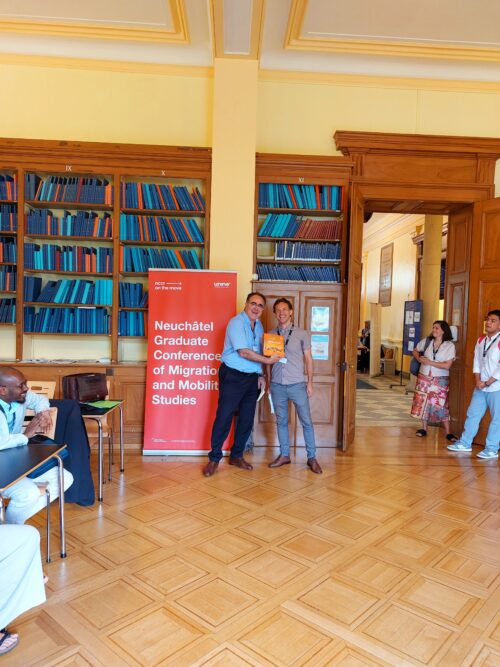Reflecting on the Neuchâtel Graduate Conference for Migration and Mobility Studies 2024

The seventh edition of the Neuchâtel Graduate Conference on the theme “Navigating Turbulences: Interdisciplinary Inquiries into the Transformations of Migration and Mobility in the 21st Century” took place on 11 and 12 July at the University of Neuchâtel and online. The conference provided a stimulating and informal context where researchers from various institutions and interdisciplinary backgrounds could present their ongoing research, get expert feedback, exchange ideas, establish networks, and initiate collaborative work.
The conference came to fruition by the successful endeavor of its organizing committee, composed of nccr – on the move members: Liliana Azevedo, Jennifer Barella, Lucas Oesch, Daniska Tampise Klebo, Maarja Vollmer and Robin Stünzi (chair). The committee, with the assistance of other members, developed the conference theme, reviewed applications, organized panels, planned side activities, chaired sessions, and selected candidates for the Best Paper Award.
The members of the committee received more than 150 applications from young researchers based in 42 countries, which made the task of selecting the successful proposals demanding and the selection process highly competitive. In the end, 64 proposals were accepted and grouped into 16 thematic panels, each addressing a different facet of the broader theme of migration and mobility transformations in the 21st century.

Stacey Haugen, from the University of Alberta and the University of Lethbridge, received the Best Paper Award for her article: “Living in the Uncomfortable: Exploring Extraction in Forced Migration Research Through Story”. The Jury aimed to reward a brilliant reflexive endeavor in the field of forced migration studies, revealing the ethical dilemmas researchers face regarding data collection’s extractive nature, the problematic assumption of researcher objectivity, and the failure to engage in genuine reciprocity.
In addition to the panels, the participants were able to choose between two parallel workshops, one on visual methods led by Amandine Desille (IGOT University of Lisbon) and Suzy Blondin (University of Neuchâtel), and another on categories in quantitative migration research, coordinated by Daniska Tampise Klebo (University of Neuchâtel).
 The event also featured an informal discussion on academic failures with panelists Matteo Gianni (University of Geneva), Eva Green (University of Lausanne), Loren Landau (University of Oxford and University of the Witwatersrand), and Tania Zittoun (University of Neuchâtel). Additionally, a round table was held on the nccr – on the move’s approach to migration, mobility, and crisis, featuring Vestin Hategekimana (University of Geneva), Anna Marino, Eloise Thompson, Janine Dahinden, Anita Manatschal, Didier Ruedin, and Lucas Oesch (all from the University of Neuchâtel).
The event also featured an informal discussion on academic failures with panelists Matteo Gianni (University of Geneva), Eva Green (University of Lausanne), Loren Landau (University of Oxford and University of the Witwatersrand), and Tania Zittoun (University of Neuchâtel). Additionally, a round table was held on the nccr – on the move’s approach to migration, mobility, and crisis, featuring Vestin Hategekimana (University of Geneva), Anna Marino, Eloise Thompson, Janine Dahinden, Anita Manatschal, Didier Ruedin, and Lucas Oesch (all from the University of Neuchâtel).
Feedback from participants was overwhelmingly positive. A satisfaction survey indicated high levels of appreciation for the event’s organization and its warm, supportive atmosphere. Participants particularly valued the diversity of attendees and topics, which expanded perspectives on migration research and provided meaningful opportunities for scholars from the Global South. The quality of presentations, discussions, and feedback from senior academics was also praised. However, some areas for improvement were noted, including the conference’s short duration, pre-conference communication issues (especially regarding funding and paper submissions), inconsistent mentor presence in parallel panels, and a lack of representation of non-white and early-career scholars in discussions about academic failures. The detailed results of the survey are available here.
The eighth edition of the conference will take place on 8 and 9 July 2025. For this edition, the organizing committee will address the areas for improvement while preserving its core strengths: the diversity of the abstracts selected, ample time allocated for the paper and expert feedback, the collaborative atmosphere, and constructive interdisciplinary exchanges between junior and senior researchers.


